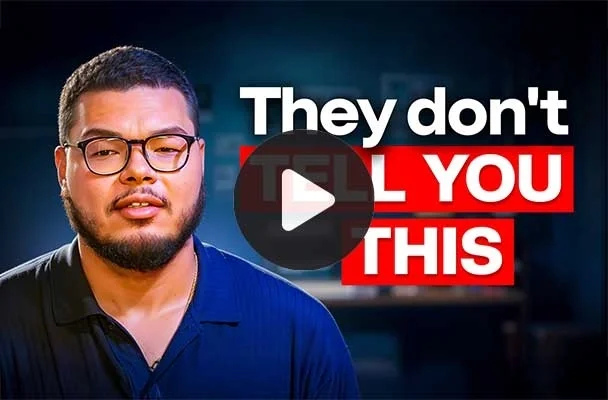
Advice for Veterans Who Hate Budgeting
You hate budgeting. I get it. The word alone probably makes you want to punch something. It sounds like micromanagement, spreadsheets, and the kind of penny-pinching nonsense that goes against everything you thought civilian freedom was supposed to be about.
Here's the truth: You don't hate budgeting. You hate civilian budgeting advice. And you should—because most of it is garbage designed for people who've been managing money since they were teenagers.
You were busy learning how to operate in hostile environments while other people were figuring out how to split restaurant bills and compare car insurance rates. Now you're supposed to get excited about tracking every coffee purchase? No wonder you hate it.
But here's what you need to understand: Your money situation isn't going to fix itself while you avoid dealing with it. And the longer you wait, the more it's going to cost you.
Why Every Budgeting Method You've Tried Feels Like Punishment
Most budgeting advice treats you like you're financially irresponsible. It assumes you need to be controlled, restricted, and monitored like you can't make good decisions on your own.
That's insulting to someone who's made life-and-death decisions under pressure. You don't need a system that treats you like a child—you need one that puts you back in command.
Traditional budgeting also ignores the reality of military-to-civilian transition. It assumes you've been gradually building money management skills for years. You haven't. You went from a system where housing, food, healthcare, and retirement were largely handled for you to one where you're suddenly responsible for every financial decision.
The typical civilian manages 15-20 different monthly bills and subscriptions. You went from maybe 3-5 financial obligations to tracking everything. Of course it feels overwhelming—because it is.
Most budgeting methods also focus on what you can't do instead of what you want to achieve. They're built around restriction rather than strategy. That's backwards for someone trained to think in terms of mission accomplishment.
Stop Calling It a Budget (Call It What It Really Is)
Forget the word "budget." It's got too much baggage. What you're really doing is resource allocation and mission planning. That should sound familiar.
Every successful military operation starts with understanding available resources, setting clear objectives, and assigning roles to accomplish the mission. Your money works the same way.
Your "budget" is actually your financial battle plan. It's how you deploy your resources to achieve your objectives—whether that's getting out of debt, buying a house, changing careers, or just not feeling stressed about money every month.
When you reframe it this way, budgeting stops being about restriction and becomes about control. You're not limiting your choices—you're making strategic decisions about how to accomplish what you actually want in life.
Keep It Simple: The Zero-Based Assignment Method
Forget complicated spreadsheets and expense-tracking apps. Most veterans who hate budgeting overcomplicate it, get frustrated, and quit within two weeks.
Here's what actually works: Give every dollar a specific job until your income minus planned expenses equals zero. This doesn't mean you spend everything—it means every dollar has a mission.
Start with your take-home pay. List your fixed expenses: rent, car payment, insurance, minimum debt payments. Then variable expenses: groceries, gas, utilities. Finally, your financial objectives: emergency fund, extra debt payments, retirement savings.
Assign dollar amounts to each category based on your priorities and past spending. If groceries typically cost $400 monthly, budget $400. If you want to put an extra $200 toward debt, assign $200 to debt payoff.
When you're done, income minus all assignments should equal zero. Every dollar has orders. No dollar sits around without a purpose.
Your Veteran Benefits Are Part of the Plan
You earned benefits that can dramatically reduce your expenses, but only if you actually use them strategically.
VA healthcare can eliminate civilian health insurance costs entirely—potentially saving $3,000-6,000 annually. If you're paying for civilian healthcare when you qualify for VA care, you're burning money for no reason.
The VA home loan saves massive amounts on housing costs: zero down payment, no private mortgage insurance. On a $250,000 home, that's $50,000 in down payment costs avoided plus $150-250 monthly by skipping PMI.
Commissary and exchange privileges cut grocery and retail costs by 10-20%. Veteran discounts are everywhere if you ask—airlines, hotels, retailers. These aren't small amounts over time.
Your benefits aren't add-ons to your budget—they're integral parts of your financial strategy. Build them into your planning from day one.
Deal With Debt Like the Enemy It Is
High-interest debt is why you feel broke even when your income should be enough. Credit cards charging 18-25% interest will sabotage every financial goal you set.
Here's the veteran-friendly approach: List all debts with their interest rates. Pay minimums on everything, then attack the highest interest rate with extreme prejudice. Every extra dollar goes to killing that debt.
Don't get emotional about which debt to pay first. This is about math and strategy. The highest rate is costing you the most money, so it gets eliminated first.
Once it's gone, roll that payment into the next highest rate. Repeat until debt-free. This method—called the debt avalanche—saves the most money over time.
Find extra money by temporarily cutting unnecessary expenses. Cancel subscriptions you don't use. Cook more meals at home. Shop smarter. Every dollar you redirect to debt payoff is a dollar that stops working against you.
Build Your Emergency Fund Without Thinking About It
That constant "broke" feeling often comes from getting hit by unexpected expenses with no backup plan. Your car needs repairs, your laptop dies, you get a medical bill—and suddenly you're deeper in debt.
Start with $500. Not $10,000. Just $500. This covers most small emergencies that would otherwise force you into debt or derail your other financial plans.
Set up an automatic transfer of $25-50 per paycheck into a separate savings account. Don't think about it, don't manage it, just let it happen. In 10-20 weeks, you'll have your initial emergency fund without feeling the impact.
Once you hit $500, build to $1,000, then one month of basic expenses. This isn't about perfection—it's about removing the panic from unexpected costs.
Automate Everything You Can
The less you have to actively manage, the more likely you'll stick with the plan. Set up automatic transfers for savings, automatic bill payments for fixed expenses, automatic debt payments above the minimum.
Your checking account becomes a staging area where money flows in and gets automatically deployed to its assigned missions. You manage by exception—only when something unusual happens.
This eliminates the daily friction of money management while keeping you in strategic control of the big picture.
Track Results, Not Transactions
Instead of obsessing over every purchase, focus on whether you're hitting your objectives. Are you building your emergency fund? Are you paying down debt? Are you staying within your tracking framework?
Check in monthly, not daily. Look at trends, not individual transactions. If you're consistently overspending in one area, adjust the plan—don't abandon it.
The Bottom Line
You don't hate budgeting—you hate complicated systems designed for people with completely different backgrounds and financial experiences.
What you need is a simple, strategic approach that puts you back in command of your money without turning you into an accountant.
Your military training already taught you everything you need: resource allocation, mission planning, strategic thinking, and adaptation under pressure. Apply those skills to your finances and you win.
Stop avoiding this. Your money situation won't improve by itself, and every month you delay costs you more in interest, missed opportunities, and financial stress.
You've handled bigger challenges than managing civilian finances. This one just happens to determine whether you build wealth or stay stressed about money for the next decade.
Execute the plan.









